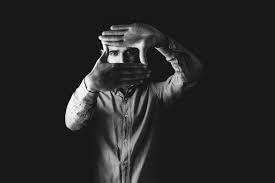Rocio Moustafa shares professional insight into antisocial personality disorder

Specialist behavioral expert Rocio Moustafa takes a closer look at the condition known as antisocial personality disorder.
VENTURA, CALIFORNIA, USA, April 19, 2019 /EINPresswire.com/ -- With more than 200,000 cases diagnosed in the United States each year, antisocial personality disorder is a mental health condition primarily characterized by a disregard for other people. An expert on behavior, mood, cognition, and perception from Southern California, Rocio Moustafa takes a closer look at those most likely to be affected, the symptoms, and the available treatment options when considering antisocial personality disorder."While antisocial personality disorder may begin to show symptoms, including risky and impulsive behavior, lying, and law-breaking, in childhood, the condition cannot be formally diagnosed until either adolescence or adulthood," explains Moustafa, who's currently based in the City of Los Angeles, the most populous city in California with an estimated population of four million.
Rocio Moustafa has also previously worked in Ventura, California, with both Los Angeles and Ventura known across the United States for their Mediterranean-like climate and rich cultures. "Individuals with antisocial personality disorder often tend to demonstrate, for example, a lack of regard for either their own safety or the safety of others around them," she explains, "as well as a tendency to lie, break laws, and act impulsively."
While symptoms may lessen with age, Moustafa reveals that antisocial personality disorder is considered a chronic condition which can last for decades, or, indeed, be lifelong. "Treatment may begin with talk therapy," she explains, "coupled with additional support for family members affected by their loved one's often extremely troubling and problematic personality disorder and its symptoms."
Requiring a medical diagnosis, those with antisocial personality disorder may experience any one or more of a large number of further behaviors and symptoms. These include, according to Moustafa, antisocial behavior, aggression, hostility, irritability, irresponsibility, deceitfulness, and manipulativeness, as well as physical substance abuse or dependence. "Their mood will often be one of anger, boredom, or general discontent," she adds.
"Family therapy, behavior therapy, and psychotherapy are all recommended forms of treatment for antisocial personality disorder," suggests Moustafa, wrapping up, "provided by either a clinical psychologist or psychiatrist, or a combination of the two."
Rocio Moustafa, from Los Angeles, California, is a behavioral expert specializing in antisocial personality disorder, narcissistic personality disorder, bipolar disorder, and passive-dependent personality disorder. She also specializes in sleep conditions, gambling addiction and its consequences, extreme or debilitating fears and phobias—including hemophobia and traumatophobia—and further health and wellness complaints tied to cognition, perception, and mood.
Caroline Hunter
Web Presence, LLC
+1 786-551-9491
email us here
Legal Disclaimer:
EIN Presswire provides this news content "as is" without warranty of any kind. We do not accept any responsibility or liability for the accuracy, content, images, videos, licenses, completeness, legality, or reliability of the information contained in this article. If you have any complaints or copyright issues related to this article, kindly contact the author above.
